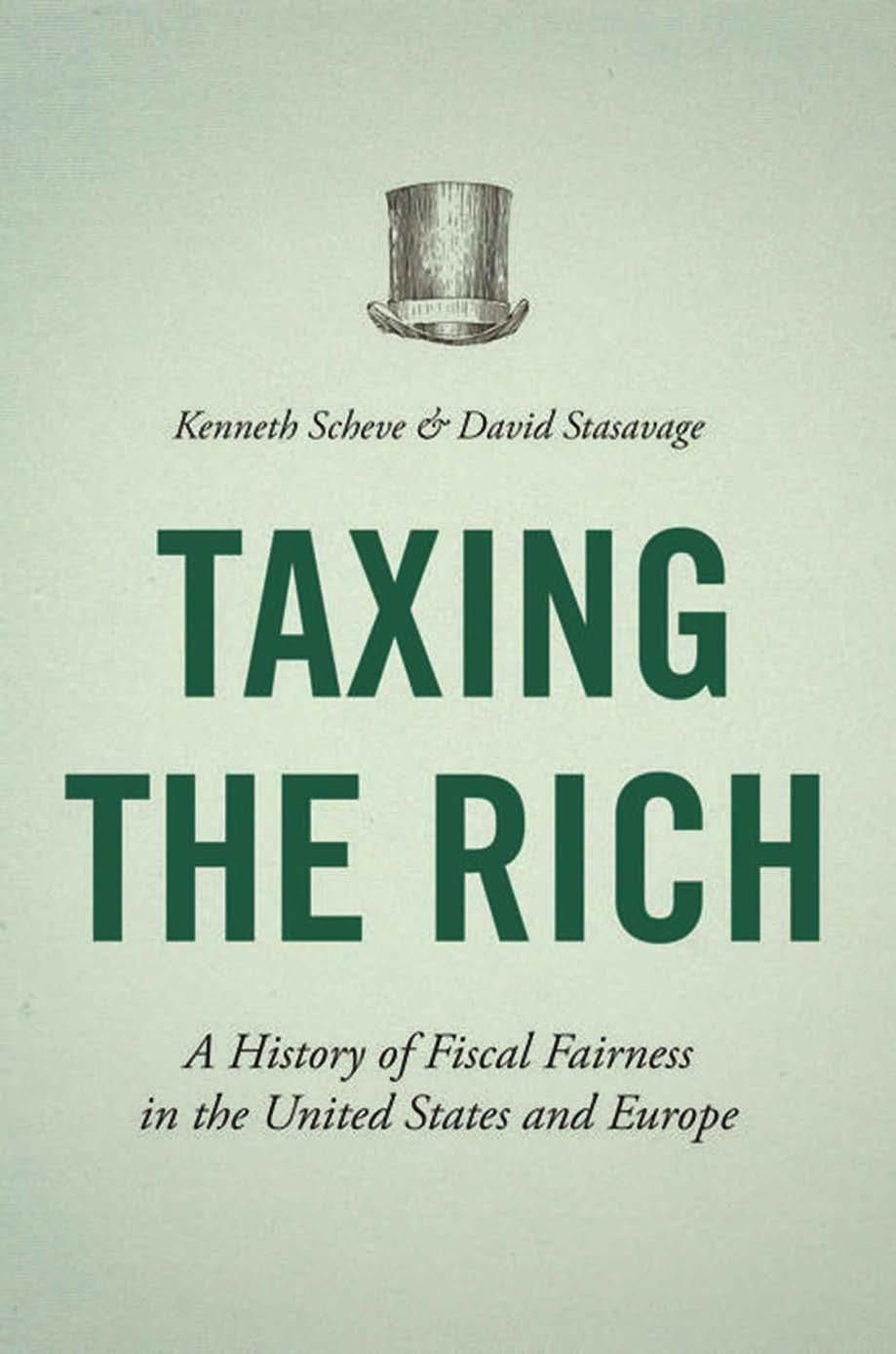Taxing the Rich: A History of Fiscal Fairness in the United States and Europe by Kenneth Scheve & David Stasavage

Author:Kenneth Scheve & David Stasavage [Scheve, Kenneth & Stasavage, David]
Language: eng
Format: epub, pdf
ISBN: 9780691165455
Google: dBJCjgEACAAJ
Publisher: Princeton University Press
Published: 2016-01-15T00:59:01.776000+00:00
FRANCE
The history of debates about progressive income taxation in France is a complex one. We can attribute this to the unsettled inheritance of the French Revolution. During the Revolution, strong support emerged in some quarters for progressive taxation of the rich, and this at a much earlier date than in many other countries. Yet, the Revolution did not result in the creation of a modern income tax, either progressive or proportional.69 Instead of opting for a tax on assessed incomes, revolutionary and post-revolutionary governments chose to create taxes on external indicators of income and/or wealth. The four taxes created during this period would subsequently become known as the quatres vieilles, or the “four old ones.” Many have attributed France’s late adoption of progressive income taxation to the legacy of the quatres vieilles and more generally to the resistance against “inquisitorial” forms of taxation.70
The inquisitorial claim was indeed a major argument levied by the political right in France against the income tax during the nineteenth century. However, as occurred in the United Kingdom, Canada, and the United States, French participation in World War I altered the arguments made in favor of taxing the rich. The arrival of powerful new compensatory arguments helps suggest why France shifted within a period of only six years from having a top marginal rate of income taxation of 2 percent to having a top rate of 50 percent. Debates in France differed from those in the UK, the United States, and Canada in several important ways. Ability to pay arguments in favor of tax progressivity arrived on the scene only belatedly in France. Correspondingly, compensatory arguments played a much more important role throughout the period we consider. In fact, both advocates and adversaries of progressive income taxation used compensatory arguments.71
Between 1790 and 1791 the Constituent National Assembly voted to create three taxes on indicators of income or wealth: the contribution foncière, a tax on land and certain types of property; the contribution des patentes, a tax on professions; and finally the contribution mobilière, a tax on the rental value of lodgings. To the extent that these three contributions did tax income or wealth, it was in a proportionate and not a progressive fashion. In step with the radicalization of the Revolution, pressure subsequently grew for establishing progressive taxation. The Convention (the successor assembly to the Constituent) voted in favor of the principle of progressive taxation on March 18, 1793.72 At the time supporters used ability to pay arguments to justify this measure. However, war mobilization in 1793 also led to the creation of new arguments that the rich should be taxed to compensate for war sacrifice. During the Revolution, the Convention did not implement a permanent progressive tax scheme. What it did do is vote a series of forced loans that were based on a progressive scale. There was also substantial ad hoc taxation of the rich at the local level.73 According to standard accounts, this arbitrary feature of progressive taxation during the revolutionary era helped color future French opinion about progressive taxation of any sort.
Download
Taxing the Rich: A History of Fiscal Fairness in the United States and Europe by Kenneth Scheve & David Stasavage.pdf
This site does not store any files on its server. We only index and link to content provided by other sites. Please contact the content providers to delete copyright contents if any and email us, we'll remove relevant links or contents immediately.
The Secret History by Donna Tartt(16619)
The Social Justice Warrior Handbook by Lisa De Pasquale(11489)
Thirteen Reasons Why by Jay Asher(7787)
This Is How You Lose Her by Junot Diaz(5768)
Weapons of Math Destruction by Cathy O'Neil(5035)
Zero to One by Peter Thiel(4823)
The Myth of the Strong Leader by Archie Brown(4789)
Promise Me, Dad by Joe Biden(4446)
Stone's Rules by Roger Stone(4415)
Beartown by Fredrik Backman(4414)
How Democracies Die by Steven Levitsky & Daniel Ziblatt(4398)
The Fire Next Time by James Baldwin(4342)
100 Deadly Skills by Clint Emerson(4076)
A Higher Loyalty: Truth, Lies, and Leadership by James Comey(4032)
Rise and Kill First by Ronen Bergman(4012)
The David Icke Guide to the Global Conspiracy (and how to end it) by David Icke(3881)
The Farm by Tom Rob Smith(3872)
Secrecy World by Jake Bernstein(3782)
The Doomsday Machine by Daniel Ellsberg(3730)
